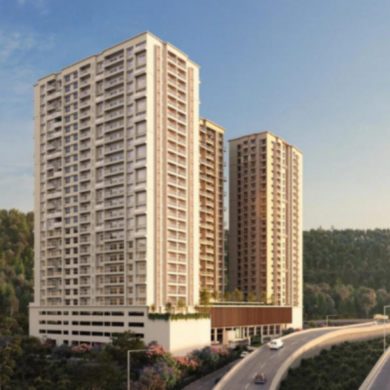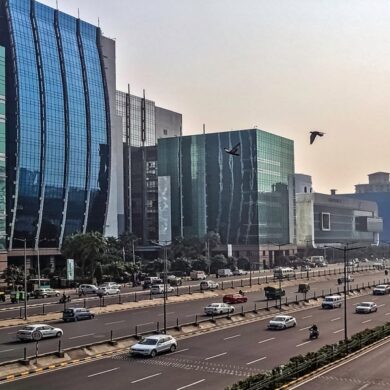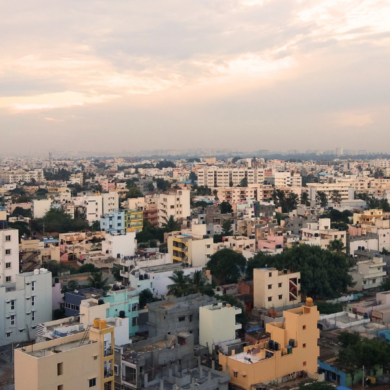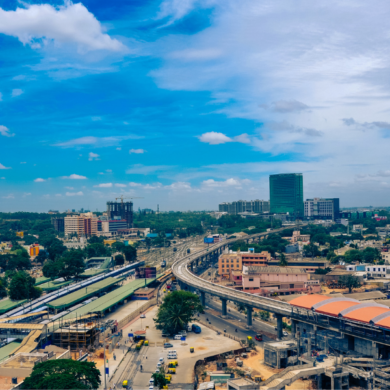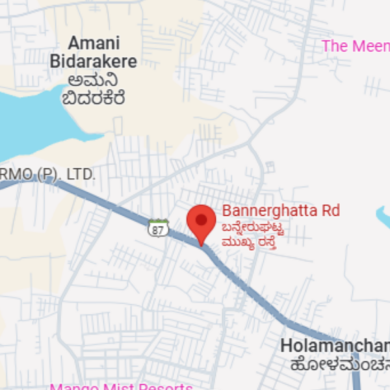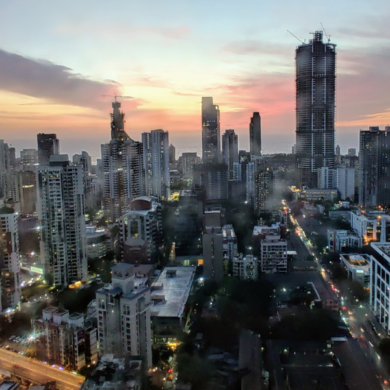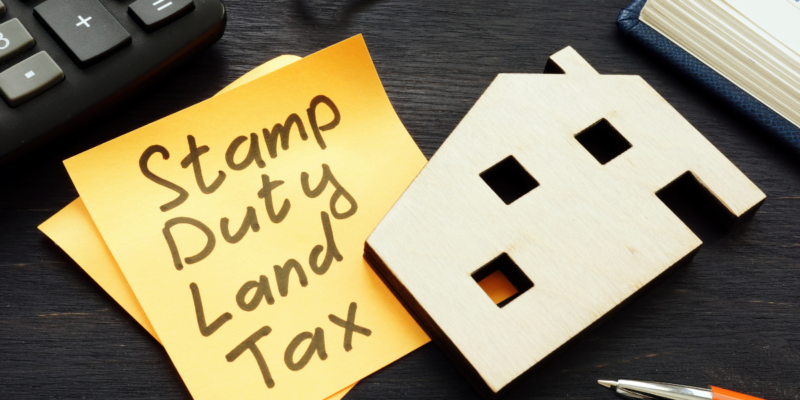
Understanding stamp duty and registration charges in Gurgaon for 2024 is essential for anyone looking to invest in property. Being a significant part of the overall cost of buying a house, these fees can influence your budget and financial planning.
Stamp duty in Gurgaon 2024 and registration charges in Gurgaon 2024 ensure the legal recognition of property ownership and are indispensable in property transactions. A key real estate market in the National Capital Region (NCR), Gurgaon offers a diverse range of residential and commercial properties. This blog provides the latest information on Gurgaon property stamp duty rates and the Gurgaon registration fee 2024, helping you navigate the property buying process more smoothly.
Table of Contents
What is Stamp Duty?
Stamp duty is a tax imposed by the government on legal documents, especially during the transfer of property ownership. Its purpose is to generate revenue for public services and infrastructure development. Legally, paying stamp duty is crucial as it validates and provides legal recognition to your property transaction. It ensures the transfer of ownership is formally noted in government records, thereby offering a clear and undisputed title to your property.
What are Registration Charges?
Registration charges are paid to the government, which is when the legal ownership of a property in official records is formally noted. These charges cover the administrative costs of maintaining property records. Legally, paying registration charges ensures the property transaction is officially documented, providing the buyer with legally recognised ownership rights. This process is essential for legal security and for conducting any future transactions involving the property.
Stamp Duty Rates in Gurgaon 2024
Understanding the stamp duty rates in Gurgaon for 2024 is important, if you are looking to invest in property in this Millenium City. These rates are determined based on the type of property and the ownership details, such as whether the owner is male, female, or if the type of ownership is joint in nature. This section provides an overview of the current rates for different property types.
-
Residential Property
For residential properties in Gurgaon, the stamp duty rates vary based on the owner’s gender and whether the property is within or outside municipal limits. Within municipal limits, the stamp duty is 7% for men, 5% for women, and 6% for joint ownership. Outside municipal limits, the rates are lower at 5% for men, 3% for women, and 4% for joint ownership.
-
Commercial Property
Commercial property transactions in Gurgaon also attract stamp duty, typically higher than residential property. These rates can vary based on the type and location of the commercial property. For instance, properties in prime commercial areas such as Golf Course Road or MG Road might have higher stamp duty due to their higher circle rates, which reflect the market value of properties in these highly sought-after areas. Typically, commercial property stamp duty rates can range from 6% to 8%, depending on these factors.
-
Agricultural Land
Stamp duty rates for agricultural land in Gurgaon are generally lower than for residential and commercial properties. The rates can vary, but typically are around 3% to 5%, depending on the exact location and use of the land. Agricultural transactions might also benefit from specific exemptions or reduced rates under certain conditions, such as use for farming purposes or transfer among family members.
Registration Charges in Gurgaon 2024
Anyone involved in property transactions must understand the registration charges in Gurgaon for 2024. These are calculated based on the property’s value, and vary depending on whether the property is residential, commercial, or agricultural.
-
Residential Property
For residential properties in Gurgaon, registration charges are structured based on the transaction value of the property. The charges are as follows:
| Property value | Registration Charges |
| Up to ₹50,000 | ₹100 |
| Between ₹50,001 and ₹5,00,000 | ₹1,000 |
| Between ₹5,00,001 and ₹10,00,000 | ₹5,000 |
| Between ₹10,00,001 and ₹20,00,000 | ₹10,000 |
| Between ₹20,00,001 and ₹25,00,000 | ₹12,500 |
| Above ₹25,00,000 | ₹15,000 |
-
Commercial Property
The registration charges for commercial properties in Gurgaon follow a similar tiered structure as residential properties. The charges typically range from ₹100 for properties valued up to ₹50,000 to ₹15,000 for properties valued above ₹25,00,000. These charges ensure that commercial property transactions are adequately documented and legally recognised.
Factors Affecting Stamp Duty and Registration Charges in Gurgaon
Understanding the factors influencing stamp duty and registration charges is crucial for property buyers and sellers. These charges can vary significantly based on several key factors:
- Property Location and Zone Classification: The property’s location within Gurgaon, whether within municipal limits or outside, significantly determines the stamp duty and registration charges. Properties in prime locations or developed zones often attract higher charges due to their higher market values and better infrastructure.
- Property Type and Usage: The nature of the property – whether it is residential, commercial, industrial, or agricultural – also affects the charges. For instance, commercial properties generally incur higher stamp duty and registration fees than residential or agricultural properties due to higher transaction values and commercial usage.
- Market Value and Sale Consideration: The property’s market value and sale consideration amount are critical factors. Stamp duty is calculated as a percentage of the property’s market value or the transaction amount, whichever is higher. Higher-valued properties naturally incur higher stamp duty and registration charges.
- Owner’s Gender and Age: In Gurgaon, there are differential stamp duty rates based on the owner’s gender and age. For example, women benefit from lower stamp duty rates than men. Additionally, there may be concessions for senior citizens to encourage property ownership.
Exemptions and Concessions on Stamp Duty and Registration Charges
Understanding the exemptions and concessions available for stamp duty and registration charges can significantly reduce the cost of property transactions. Here is an overview of the current government schemes and specific exemptions available.
Government Schemes
The Haryana government offers various exemptions and concessions on stamp duty and registration charges to ease the financial burden on property buyers. One notable scheme is the tax exemption under Section 80C of the Income Tax Act of 1961.
This provision allows homebuyers to claim deduction of up to ₹1.5 lakh for stamp duty and registration charges paid while purchasing a new property. This deduction applies to individual and Hindu Undivided Family (HUF) taxpayers, helping you reduce the overall taxable income(Square Yards).
Special Categories
The government provides specific exemptions for women, senior citizens, and other special categories to encourage property ownership among these groups:
- Women: These property buyers enjoy a lower stamp duty rate of 5% for properties within municipal limits and 3% for properties outside municipal limits. This reduced rate aims to promote female property ownership.
- Senior Citizens: While specific concessions for senior citizens are not detailed in the available sources, it is common for state governments to offer reduced rates or exemptions to encourage property ownership among the elderly.
- Other Special Categories: Other exemptions may include concessions for properties transferred between family members, often subject to nominal stamp duty rates. For instance, properties transferred as gifts or through inheritance may attract minimal or no stamp duty.
Criteria and Documentation Required
To avail these exemptions, property buyers must meet certain criteria and provide the necessary documentation. These documents ensure that buyers meet the eligibility for exemptions, hence these must be submitted during the property registration process.
- Proof of identity and age (e.g., Aadhar card, PAN card)
- Proof of relationship, in case of transfer of property within the family
- Specific certificates for claiming exemptions under government schemes (e.g., tax exemption certificates)
How to Calculate Stamp Duty and Registration Charges in Gurgaon 2024?
Understanding how to calculate stamp duty and registration charges is crucial for property buyers and sellers. These charges can significantly impact the overall cost of property transactions. Here is a detailed guide to help you navigate this process.
Step-by-Step Guide to Calculate Stamp Duty and Registration Charges in Gurgaon 2024
Online Calculators and Tools
This is one of the easiest ways to calculate stamp duty and registration charges. Many websites provide these tools, which require basic information about the property to generate accurate estimates. Here is how to use them:
- Visit the Official Websites: Use platforms like the Haryana Jamabandi website or other real estate portals with stamp duty calculators.
- Enter Property Details: Input the property’s transaction value, select the municipality limit, and specify the buyer’s gender & age.
- Review and Calculate: Click the calculate button for the estimated stamp duty and registration charges.
Manual Calculation Methods
If you prefer manual calculations, follow these steps:
- Determine the Circle Rate: Find the circle rate for the property’s location. Circle rates are the minimum prices the government sets for property transactions in each area.
- Calculate the Property Value: Multiply the built-up area by the circle rate.
- Apply the Stamp Duty Rate: Use the applicable stamp duty rate based on the property type and ownership details. For example, within municipal limits, the stamp duty is 7% for men, 5% for women, and 6% for joint ownership.
- Calculate Registration Charges: Registration charges are typically a flat fee based on the property’s value, as outlined in the Haryana government guidelines.
Formula:
Stamp Duty = Property Value × Stamp Duty Rate
Registration Charges = Fixed Amount based on Property Value
Examples of Stamp Duty and Registration Charges in Gurgaon 2024
Practical Examples with Hypothetical Property Values
- Residential Property Within Municipal Limits
- Property Value: ₹50,00,000
- Stamp Duty Rate for Women: 5%
- Registration Charges: ₹10,000 (for property valued between ₹10,00,001 and ₹20,00,000)
- Calculation
- Stamp Duty=₹50,00,000 × 0.05 = ₹2,50,000
- Registration Charges = ₹10,000
- Commercial Property Outside Municipal Limits
- Property Value: ₹1,00,00,000
- Stamp Duty Rate for Joint Ownership: 4%
- Registration Charges: ₹15,000 (for property valued above ₹25,00,000)
- Calculation
- Stamp Duty = ₹1,00,00,000 × 0.04 = ₹4,00,000
- Registration Charges = ₹15,000
- Agricultural Land
- Property Value: ₹20,00,000
- Stamp Duty Rate: 5%
- Registration Charges: ₹10,000 (for property valued between ₹10,00,001 and ₹20,00,000)
- Calculation: Stamp Duty = ₹20,00,000 × 0.05 = ₹1,00,000
- Registration Charges = ₹10,000
Gurgaon Stamp Duty & Registration Charges Payment Procedure
Paying stamp duty and registration charges is a crucial step in property transactions. To make the payment, you can consider either online or offline process; below is a guide on both the ways.
Online Payment
Paying stamp duty and registration charges online is convenient and ensures a seamless transaction process. Here are the steps to follow:
- Visit the Official Website: Visit the Government Receipt Accounting System (GRAS) or the Haryana Jamabandi website
- Create an Account: If you do not have an account, register by creating one. Use a valid email and mobile number for verification.
- Enter Property Details: Fill in the required property details, such as property type, location, and transaction value
- Calculate Charges: The system will automatically calculate the applicable stamp duty and registration charges based on the entered details
- Make the Payment: Select the payment method (netbanking, credit / debit card, or UPI) and complete the transaction
- Download Receipt: After the payment is successful, download the receipt and keep it for future reference. This receipt will be needed during the property registration process.
Sources: GRAS Haryana, Haryana Jamabandi
Offline Payment
For those who prefer or require offline payment, here are the steps to pay stamp duty and registration charges:
- Visit the Nearest Tehsil Office: Go to the local sub-registrar or tehsil office where the property is located
- Collect the Forms: Obtain the necessary forms for stamp duty and registration charges from the office
- Fill in the Details: Complete the forms with accurate property and personal information
- Calculate Charges: The officials at the tehsil office will help you calculate the applicable stamp duty and registration charges
- Make the Payment: Pay the charges at the designated counter within the tehsil office. Ensure you get a payment receipt.
- Submit Documents: Submit the filled forms, the payment receipt, and other required documents (e.g., proof of identity property documents) to the sub-registrar.
- Verification and Registration: The sub-registrar will verify the documents and process the registration. Once completed, you will receive the registration certificate.
List of Offices and Authorities Involved
- Sub-Registrar Office: Responsible for verifying documents and processing registration
- Tehsil Office: Handles the initial submission of forms and charges calculations
- Designated Counters: Facilitate the payment of stamp duty and registration charges
Legal Formalities and Documentation
Navigating the legal formalities and documentation for property transactions in Gurgaon requires thorough understanding and preparation. Here is a detailed guide on the required documents, the verification process, and common mistakes to avoid.
Required Documents
To complete the payment of stamp duty and registration charges in Gurgaon, the following documents are typically required:
- Sale Agreement: Legal document outlining the terms and conditions of the sale
- Sale Deed: Main document for transferring ownership of the property
- Khata Certificate: Proof of property assessment by local authorities
- Society Share Certificate: Required for properties within a housing society
- No Objection Certificate (NOC): From the relevant authorities
- Building Plan: Approved building plan or layout
- Possession Letter: Confirmation that the property is ready for possession
- Title Documents: Documents proving the title of the property
- Records of Rights and Tenancy Corps: For verification of ownership
- Conversion Order: If agricultural land is to be converted for other uses
- Tax Paid Receipts: Proof of payment of property taxes
- Encumbrance Certificate: Certifying that the property is free from legal dues
Verification Process
To ensure all legal formalities are met, the verification process involves many steps:
- Document Submission: Submit the necessary documents online via the Jamabandi portal, or offline at the sub-registrar’s office
- Biometric and Photo Verification: The buyer must be physically present at the sub-registrar’s office for biometric verification
- Document Review: The sub-registrar reviews the documents to ensure all legal requirements are met
- Payment Verification: Verify the payment of stamp duty and registration charges
- Issuance of Registration Certificate: Once verified, the sub-registrar issues the registration certificate, finalising the ownership transfer (IndiaFilings)
Common Issues and Solutions
While registering your property, you might encounter certain issues that you need to be aware of, so that you will not be misguided.
- Incorrect Property Valuation: To avoid penalties, ensure the property valuation is accurate and aligns with the circle rates
- Incomplete Documentation: To prevent delays, double-check that all documents are submitted
- Missed Exemptions: To avoid overpayment, be aware of any applicable exemptions or concessions, such as reduced rates for women or senior citizens.
Common Mistakes to Avoid
Much like the issues and solutions listed above, certain other mistakes could occur. Below are a few that you can keep an eye out for.
- Mistakes in Property Valuation: To calculate the stamp duty accurately, ensure you use the correct circle rate for the property’s location
- Errors in Documentation: Double-check all documents for accuracy and completeness before submission
By understanding and following these guidelines, you can effectively navigate the legal formalities and documentation process for property transactions in Gurgaon. For more detailed and updated information, always refer to official resources or consult with a property expert.
Conclusion
Understanding the nuances of stamp duty and registration charges is crucial for any property transaction. This article has covered essential aspects such as the significance of these charges, steps to calculate them, both online & offline payment procedures, and legal documentation required.
Staying informed about the current stamp duty and registration charges in Gurgaon for 2024 is vital to avoid unexpected costs and legal issues. Staying updated on government policies and using accurate calculators can ensure that you are well-prepared for the financial obligations associated with property transactions.
Property lawyers and real estate consultants can provide personalised guidance, ensuring all legal requirements are met and helping you take full advantage of available exemptions and concessions.
- Contact a Property Lawyer or Real Estate Expert: For personalised advice and to navigate complex property transactions smoothly, consider consulting a professional. They can provide expert insights and ensure compliance with all legal formalities.
- Use Online Tools and Resources: Use the government’s online tools and resources, such as the Haryana Jamabandi portal and the Government Receipt Accounting System (GRAS). These platforms offer calculators and detailed information to help you accurately calculate stamp duty and registration charges.
Leveraging these resources and seeking professional guidance can ensure a seamless and informed property transaction process. For detailed information and updates, refer official government websites and consult with property experts
FAQs
1. What is stamp duty?
Stamp duty is a tax paid to the government on the sale, transfer, or lease of property. It serves as legal evidence of property ownership and is required to validate the transaction. The amount is a percentage of the property's market value or sale consideration.
2. How are stamp duty rates determined in Gurgaon?
Stamp duty rates in Gurgaon are determined by the Haryana Government, and vary based on the type of property (residential / commercial / agricultural), location, and other factors such as the buyer’s gender. The rates are periodically reviewed and updated by the government.
3. What are the current stamp duty rates for residential property in Gurgaon?
The current stamp duty rates for residential property in Gurgaon 2024 are around 5% for male owners, 3% for female owners, and 4% for joint ownership. However, these rates are subject to change, and it is advisable to check the latest rates from official sources.
4. What are registration charges?
Registration charges are fees paid to the government to register the property in the buyer's name. This process legally records the property transaction and provides public notice of the ownership change. Registration charges are separate from stamp duty, and are also based on the property's value.
5. How much are the registration charges for properties in Gurgaon?
The registration charges for properties in Gurgaon are generally 1% of the property’s market value or sale consideration, subject to a minimum and maximum limit as specified by the Haryana state government.
6. Are there any exemptions or concessions available on stamp duty and registration charges?
Yes, there are exemptions and concessions available on stamp duty and registration charges, such as lower rates for female buyers and senior citizens. Additionally, there may be concessions under specific government schemes aimed at promoting affordable housing or other initiatives.
7. How can I calculate the stamp duty and registration charges for my property?
You can calculate the stamp duty and registration charges for your property using online calculators provided by the Haryana State Government or real estate websites. You can also manually calculate these charges by applying the respective rates to your property's market value or sale consideration.
8. What documents are required for the registration of property in Gurgaon?
Documents required for the registration of property in Gurgaon are sale deed, proof of identity & proof of address of both buyer and seller, PAN card, property card, tax receipts, and any applicable no-objection certificates (NOCs). It is advisable to consult with a legal expert to ensure all necessary documents are available during the registration process.
9. Can I pay stamp duty and registration charges online?
Yes, you can pay stamp duty and registration charges online, through the official website of the Haryana State Government. Online payment options include netbanking, credit / debit cards, and other digital payment methods.
10. What should I do if I make an error in the stamp duty or registration charge payment?
If you make an error in the stamp duty or registration charge payment, you should immediately contact the relevant government authority or the office where the transaction was processed. They can provide guidance on how to rectify the mistake, which may involve submitting a correction application or other necessary documentation.
11. How long does the property registration process take?
The property registration process usually takes a few days to a couple of weeks, depending on the completeness and accuracy of the submitted documents and the workload of the local registration office.
12. What are the consequences of not paying stamp duty or registration charges?
The consequences of not paying stamp duty or registration charges are legal penalties, including fines and interest. The property transaction may be considered invalid, which can lead to complications in establishing legal ownership.
